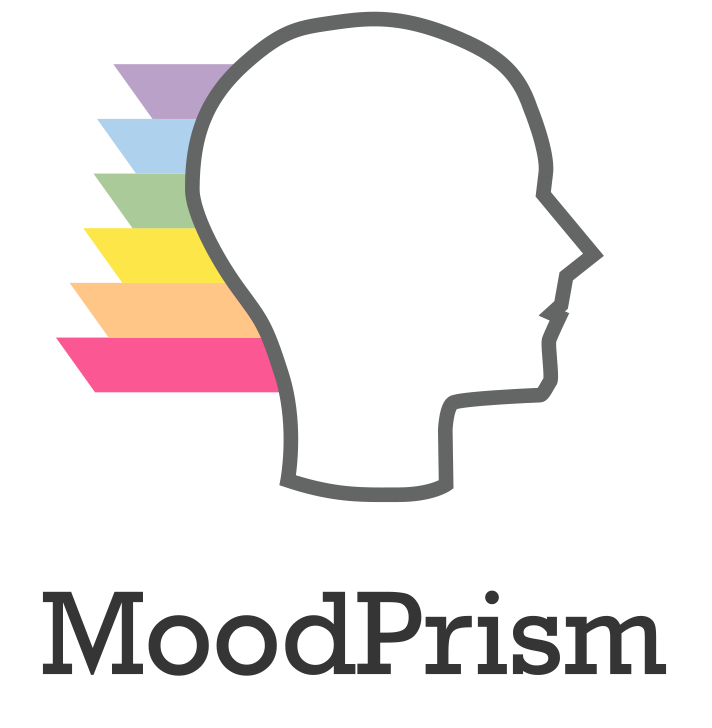
Tracking Mental Health and Wellbeing of your People
Organisations - including not-for-profits, businesses, schools and universities - and Researchers can also use MoodPrism to track the emotional health of their employees or community.
Work with the MoodPrism team to access the breadth of data collected on your people, and summarise emotional health – either generally, or following interventions you may have introduced.
Organisations
Benefits for employees
We believe that using MoodPrism can help boost the emotional health, well-being, and productivity of your employees.
Simply being asked “How are you feeling today?” has been found to help people become more aware of their own emotional well-being. Microsoft has also found that regular logging of emotional states helped workers reflect on how their productivity was related to their daily emotional patterns. This can help workers schedule their activities better (for example, doing rote work when alertness or mood is low and more intensive work when alertness and mood are more positive). Bringing awareness to how employees feel can help them make better decisions, boost their mental health, and lead to a more fulfilling life.
Mental illness costs organisations significantly - in terms of employee performance, absenteeism and staff turnover. The World Health Organisation reports that 20% of the adult working population has some type of mental health problem. Beyond blue reports that depression costs over six million working days lost, and 12 million days of reduced productivity, each year in Australia. If one of your workers is feeling consistently low or depressed, the app will prompt them to seek help and suggest places to find reliable mental health information. This will help vulnerable users find support early on, which is one of the best ways to help prevent decline into mental illness.
Feedback to your organisation
Because MoodPrism also acts as a data collection tool, the MoodPrism team can provide a well-being profile for your organisation. This profile provides feedback on the mental, emotional and social well-being, resilience, social support and self-esteem of your employees. It can also provide some comparison of particular groups or departments within your organisation.
Schools and Universities
Schools and universities can also use MoodPrism to track the emotional health of their students.
Work with the MoodPrism team to access the breadth of data collected on your students, and summarise social and emotional wellbeing of your students in general, or following curriculum changes or programs you've introduced.
Benefits for students
Adolescence is a unique time period throughout the lifespan that poses new challenges that can be distinct from childhood and adulthood. For some, these challenges can be overwhelming and can adversely affect emotional well-being. This can negatively influence important features of student functioning which can lead to undesirable outcomes like poor academic performance and strained peer relationships.
With the rising rates of smartphone use among high school students, MoodPrism becomes an easy and effective way for students to engage with their feelings, becoming more aware of them, and better understanding themselves. In doing so, students can take advantage of the mental health benefits afforded by MoodPrism to improve emotional well-being and positively contribute to overall school functioning.
Feedback to your school or university
Because MoodPrism also acts as a data collection tool, MoodPrism researchers can provide feedback about the well-being of particular groups of individuals. Schools can request MoodPrism researchers to return after a month/3 months/6 months to present staff with an overview of the mental health and well-being of their students.
Researchers
Evidence-based
MoodPrism’s content is drawn from scientific literature on emotion regulation and wellbeing and mental health. We have published evidence showing that MoodPrism is sensitive to changes in wellbeing over time, Importantly, using MoodPrism can also raise emotional awareness, and have a positive impact on emotional health over time
MoodPrism collects baseline and post-intervention psychometric data on a range of psychological constructs of interest to researchers.
Broad assessment of mental health and wellbeing
Psychometric assessment. Researchers will have access to a rich psychological profile of their users, including:
- Depression and anxiety
- Positive psychological wellbeing
- Personality
- Social media use
- Music capacity
- Emotional self-awareness
- Coping Self-efficacy
Daily mood tracking. Researchers will also be able to track their community's emotional health over time. Users complete ratings daily ratings of their:
- Depression and anxiety
- Positive and negative psychological mood state
- Energy levels
- Context (who, where and what they were doing)
- Significant life events



